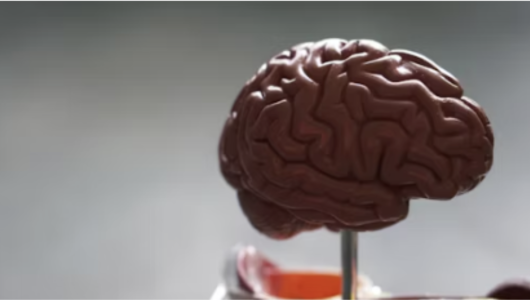This everyday relaxation habit could be quietly raising your dementia risk by 72%
- Replies 0
Disclaimer: The information provided in this article is for educational purposes only and is not intended as a substitute for professional medical advice, diagnosis, or treatment. Always consult your physician or other qualified healthcare providers with any questions you may have regarding a medical condition or before making any changes to your health regimen.
As we age, relaxation routines become a treasured part of our day.
But what if one of these common habits—used by millions to unwind—is silently linked to long-term cognitive risk?
A new study suggests that something many consider harmless could be associated with a 72% higher chance of developing dementia
Here’s what every health-conscious reader should know.
A study published in JAMA Neurology has uncovered a troubling association between cannabis-related emergency care and long-term brain health.
Researchers found that individuals who were hospitalized or visited the ER for cannabis-related issues were up to 72% more likely to develop dementia compared to those in the general population.

The data comes from the Bruyère Health Research Institute in Ottawa, Canada.
It examined more than 6 million people, aged 45 to 105, in Ontario—all of whom had no history of dementia at the study’s start.
Among them, 16,275 developed dementia—and a notable portion had received acute care for cannabis use, such as emergency department visits or hospitalizations.
Also read: 8 everyday habits that could help you avoid a stroke, according to a nurse
Within five years:
Cannabis has long been associated with memory, attention, and learning problems—especially with regular or long-term use.
Research has shown it may:
Cannabis contains THC, its primary psychoactive component. THC can:
Also read: Are you at risk? The vital health test your doctor might be overlooking
“Regular cannabis use might directly increase the risk of dementia through changes in brain structure,” said Dr. Colleen Webber, co-author of the study.
She added that cannabis may also indirectly contribute by increasing the risk of head trauma, depression, and social isolation—all of which are recognized dementia risk factors.
“While we collectively need more research to better understand potential risks of regular cannabis use on cognition and dementia, we hope these findings can inform discussion between patients and healthcare providers,” said Dr. Daniel Myran, Associate Scientist at The Ottawa Hospital.
In the US, nearly 15% of adults report regular cannabis use. Recreational use is now legal in 24 states, while 38 states allow medicinal cannabis.
In the UK, private cannabis prescriptions doubled last year, reaching nearly 180,000, according to the Care Quality Commission.
Despite its growing popularity, public awareness of potential long-term risks remains low—especially among older adults who may turn to cannabis for pain, sleep, or stress relief.
Read next: Are antidepressants affecting dementia risk? What you need to know

As we age, relaxation routines become a treasured part of our day.
But what if one of these common habits—used by millions to unwind—is silently linked to long-term cognitive risk?
A new study suggests that something many consider harmless could be associated with a 72% higher chance of developing dementia
Here’s what every health-conscious reader should know.
A study published in JAMA Neurology has uncovered a troubling association between cannabis-related emergency care and long-term brain health.
Researchers found that individuals who were hospitalized or visited the ER for cannabis-related issues were up to 72% more likely to develop dementia compared to those in the general population.

A study published in JAMA Neurology has uncovered a troubling association between cannabis-related emergency care and long-term brain health. Image Source: Robina Weermeijer / Unsplashh
The data comes from the Bruyère Health Research Institute in Ottawa, Canada.
It examined more than 6 million people, aged 45 to 105, in Ontario—all of whom had no history of dementia at the study’s start.
Among them, 16,275 developed dementia—and a notable portion had received acute care for cannabis use, such as emergency department visits or hospitalizations.
What the numbers show:
Also read: 8 everyday habits that could help you avoid a stroke, according to a nurse
Within five years:
- 5% of people who received acute care for cannabis were diagnosed with dementia
- Compared to:
- 3.6% of those treated for other medical reasons
- 1.3% in the general population
- 19% of cannabis-related patients developed dementia
- Compared to:
- 14.8% of alcohol-related patients
- 5.5% in the general population
Cannabis has long been associated with memory, attention, and learning problems—especially with regular or long-term use.
Research has shown it may:
- Affect the hippocampus, the brain’s memory center
- Reduce blood flow to critical brain regions
- Possibly contribute to brain atrophy, including shrinkage of memory-related structures
Cannabis contains THC, its primary psychoactive component. THC can:
- Raise heart rate
- Increase blood pressure
- Potentially strain the cardiovascular system
Also read: Are you at risk? The vital health test your doctor might be overlooking
“Regular cannabis use might directly increase the risk of dementia through changes in brain structure,” said Dr. Colleen Webber, co-author of the study.
She added that cannabis may also indirectly contribute by increasing the risk of head trauma, depression, and social isolation—all of which are recognized dementia risk factors.
“While we collectively need more research to better understand potential risks of regular cannabis use on cognition and dementia, we hope these findings can inform discussion between patients and healthcare providers,” said Dr. Daniel Myran, Associate Scientist at The Ottawa Hospital.
In the US, nearly 15% of adults report regular cannabis use. Recreational use is now legal in 24 states, while 38 states allow medicinal cannabis.
In the UK, private cannabis prescriptions doubled last year, reaching nearly 180,000, according to the Care Quality Commission.
Despite its growing popularity, public awareness of potential long-term risks remains low—especially among older adults who may turn to cannabis for pain, sleep, or stress relief.
Read next: Are antidepressants affecting dementia risk? What you need to know
Key Takeaways
- A new study links cannabis-related emergency care to a 72% higher risk of dementia.
- Dementia risk among cannabis users surpasses alcohol-related cases over a 10-year period.
- Long-term cannabis use may affect brain structures and reduce blood flow associated with cognition.
- Researchers urge older adults and regular users to talk to doctors about long-term effects.
Have you or someone you know used cannabis to manage stress, sleep, or pain? Does this study change how you think about its risks? Join the conversation below.






